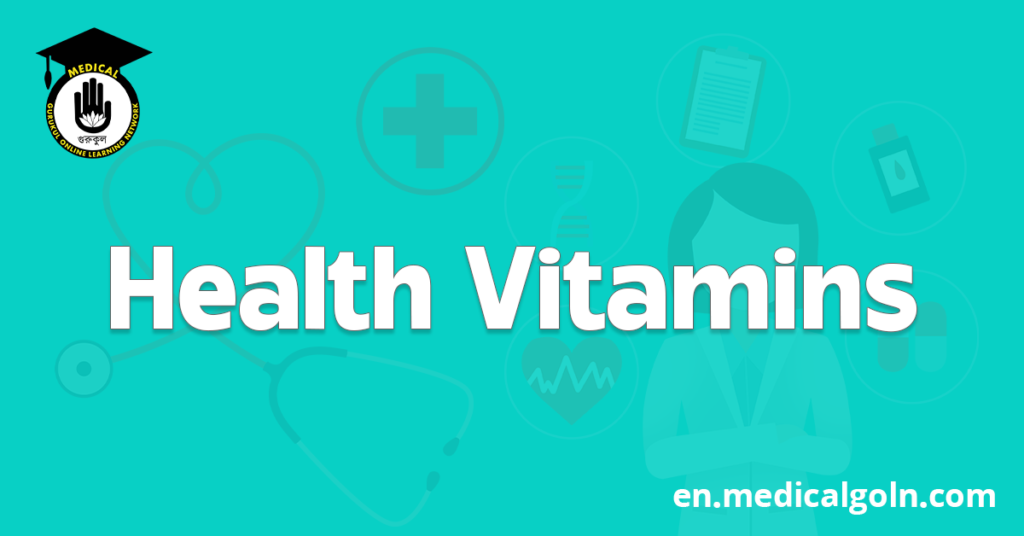Today is our topic of discussion Health Vitamins
Health Vitamins
Definition:
These are organic accessory food factors present in minute quantities in various food substances, required by the body in very small amount and act as catalyst in different body reactions. so that various physiological functions can go on normally.
Provitamins:
These are the substances which do not posses vitamin activity but can be transformed within the body into active form of vitamin. Example: B-carotene is the provitamin of vitamin-A.
Characteristics of vitamin:
1. Widely distributed in nature, available both from animal and plant source to 0. 2. Daily requirement is very small.
3. All vitamins are absorbed from GIT.
4. Most of the fat soluble vitamins are stored in the body either in the liver or in the tissues. The water soluble vitamins are least stored.
5. Some vitamins are synthesized within the body. These are vitamin-D and vitamin-K.
6. Vitamins are not usually destroyed by the digestive process.
7. They do not produce energy, but several of them act as coenzyme of other metabolic enzymes.
8. They are not antigenic,
9. Some are water soluble and some are soluble in fats.
Classification of vitamins:
Fat soluble vitamins:
Vitamin A, vitamin D, vitamin E and vitamin K (Remember ADEK). As they are fat soluble, they remain stored in the body for a long time.
Water soluble vitamins:
Vitamin-B complexes and vitamin C. As they are water soluble, they are not stored in the body for more than 72 hours except vitamin-
B12. The components of vitamin-B complexes are –
1. Thiamine (B)
2. Riboflavin (B2)
3. Niacin
4. Pyridoxine (B6)
5. Pantothenic acid
6. Biotin
7. Folic acid
8. Cyanocobalamin (B12)
See also :

